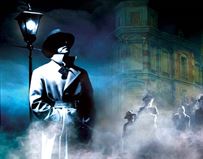
An Inspector Calls : Important Quotes
An Inspector Calls : Important Quotes | 18 Key Quotes – An inspector called the English playwright. B. is a play written by Priestley, first performed in the Soviet Union in 1945, and the following year at the New Theater in London. It is one of Priestley’s best-known works for the stage and is considered one of the classics of mid-20th century theater.
An Inspector Calls : Important Quotes | 18 Key Quotes

Sheila
“I’m not very happy tonight Oh, I wish you hadn’t told me”
“You and I are not the same people who sit here eating”
“I think we’re all good people now”
10 Key Quotes from ‘An Inspector Calls’ Plot
Mr Birling
“I am talking as an alcoholic, practical man of business … there is no chance of war”
“I can not accept any responsibility”
“Maybe a socialist or some kind of crank”
An Inspector Calls KEY QUOTES Explained
Gerald
“All she wanted was to talk – a little friendship”
“I didn’t feel the same way he felt about me”
“Is there anything else you want to know – that you need to know?”
An Inspector Calls : Important Quotes
Inspector Goole
“We have to share something. If nothing else, we have to share our crime. “
“I’ll have a lot of time to go, to accommodate your family relationships”
“But just remember this … fire and blood and suffering. Good night”
An Inspector Calls : Important Quotes | 10

An Inspector Calls : Important Quotes
Mrs Birling
“Go and look for the child’s father. It’s his responsibility”
“Nothing embarrassed me unlike the other three”
“Sorry. But I think he only blamed himself”
An Inspector Calls : Important Quotes | 10 Key Quotes

Eric
“I didn’t have a few drinks, including a lot of champagne”
“What happened to this girl and what did all of us do for her”
“He could have kept it instead of throwing it away”
An Inspector Calls : Important Quotes
5 Essential An Inspector Calls Quotations
Number One:
When you’re married you’ll realize that men have important work to do sometimes have to spend nearly all their time and energy on their business. You’ll have to get used to that, just as I had
MRS BIRLING TO SHEILA
- There is created a clear hierarchical distinction between men and women where men ‘have important work to do’ and women must make themselves busy with something of far less importance. This is a key example of patriarchy.
- This is said by Mrs Birling: she has internalised the social norms of the Edwardian period. It is not simply that men are telling women what to do, but that Mrs Birling has been ideologically compelled to become complicit in this also. The patriarchal ideology is so entrenched within society that it is adopted and propagated by Mrs Birling.
- There is a sense of resignation: there is nothing that can be done about this and as such Sheila will just have ‘to get used to that’. This also speaks to the idea that this ideology has been passed down through the generations: just as Mrs Birling accepted the ideology so too, in time, will Sheila.
- However, it is exactly this cycle that Priestly seeks to break through his play. Notice, for instance, that Sheila’s response to this is: ‘I don’t believe I will’ (half playful, half serious)’ (3). She may only be half serious now, but by the end of the play she will be entirely serious.


